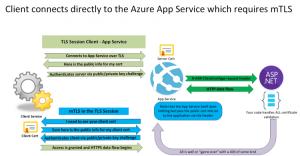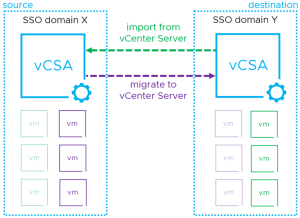
WASHINGTON, September 20, 2023 – Three state broadband leaders highlighted at a Broadband Breakfast Live Online event Wednesday key points of focus ahead of their implementation of the Broadband Equity, Access and Deployment program.
The BEAD program allocates $42.5 billion to states for expanding broadband infrastructure. States are in the process of releasing their initial proposals for administering the program – due to the National Telecommunications and Information Administration by December 27 – and hearing public comments.
The conversation was a preview of some topics up for discussion with state broadband heads, BEAD and other federal grant program officials, and service providers at the Broadband Breakfast BEAD Implementation Summit Thursday. Registration is open for in-person and virtual attendance.

Subgrantee selection timeline
States will have one year from the approval of their initial proposals to award subgrants under the program and submit their final proposals to the NTIA. Those awards have to be allocated via a bidding process.
Getting that done will be difficult, said Jim Stritzinger, the head of South Carolina’s broadband office.
“It’s really, really hard to deploy $551 million in 12 months,” he said. “And other states have much larger allocations than ours, I don’t know how they’re going to do it.”
Brian Newby of the North Dakota Broadband Program, echoed the concern.

“I am concerned that there will be locations that just won’t be bid on,” he said, and a second round of bidding to hit those areas would be difficult to fit in before the deadline.
Stritzinger noted that state offices are permitted under NTIA rules to negotiate directly with providers to BEAD-supported infrastructure in areas missed by the bidding process, rather than open a second round, which could save time, he said.
Letters of credit
BEAD requires grant recipients to get letters of credit from banks for 25 percent of the funds they receive to undertake projects. The requirement has been flagged by the industry as potentially blocking smaller providers from being able to accept grants.
The requirement still applies to publicly owned entities, Vermont broadband director Christine Hallquist noted. That will be a problem in Vermont, she said, where some communications infrastructure is owned by coalitions of towns.
“Municipalities just do not have that kind of money,” she said.
Speed test data
The broadband heads also noted the importance of reliable locations in speed test data. When speed tests are run in computer browsers, as opposed to direct measurements from equipment or from GPS-enabled devices like smartphones, they have less precise locations attached to them.
“You could very easily see a bunch of speed tests stacking up on a single dot in the center of a zip code,” Stritzinger said. “You have to be careful about that.”
Hallquist emphasized collecting speed data from different points along a network’s infrastructure to pinpoint where speed loss is happening.
“We want to help people address all of the issues that are a part of that stream of data,” she said.
Our Broadband Breakfast Live Online events take place on Wednesday at 12 Noon ET. Watch the event on Broadband Breakfast, or REGISTER HERE to join the conversation.

Wednesday, September 20, 2023 – Preview of BEAD Implementation Summit

Ahead of the Broadband Breakfast BEAD’s Implementation Summit on September 21, this free live online event will offer a sneak peek into what the summit has in store. It will set the stage for the upcoming panels, including a roundtable with state broadband officers, a discussion of past broadband efforts, the role of public-private partnerships and a town hall session on problems still to tackle. Tune in to see what’s in store at the BEAD Implementation Summit in Washington on Thursday, September 21, 2023.
Panelists
- Brian Newby, Director, North Dakota Broadband Program Director
- Jim Stritzinger, Director, South Carolina Broadband Office
- Christine Hallquist, Executive Director of the Vermont Community Broadband Board
- Drew Clark (moderator), Editor and Publisher, Broadband Breakfast
Register for the BEAD Implementation Summit on September 21, 2023.
Brian Newby leads the North Dakota State Broadband Office, targeting broadband for all in North Dakota by administering more than $175 million in federal grants. Formerly served as the State Election Director at the North Dakota Secretary of State; previously was the Executive Director for U.S. Election Assistance Commission, a federal government agency, and Election Commissioner for Johnson County, the largest jurisdiction in Kansas and in the Kansas City metropolitan area. Before elections, worked as director of strategy for Sprint’s $10 billion Global Markets Group.
As part of the South Carolina Office of Regulatory Staff, Jim Stritzingerserves as Director of the Broadband Office which was formed in July 2021. He manages a full-time team of five and is directly responsible for ensuring the rapid deployment of broadband infrastructure statewide and overseeing $1 billion in state and federal grant investments.
Christine Hallquist is the Executive Director of the Vermont Community Broadband Board. Their mission is to connect every Vermont address to fiber, make it affordable and maximize positive social impact. Christine was the former CEO of Vermont Electric Cooperative.
Breakfast Media LLC CEO Drew Clark has led the Broadband Breakfast community since 2008. An early proponent of better broadband, better lives, he initially founded the Broadband Census crowdsourcing campaign for broadband data. As Editor and Publisher, Clark presides over the leading media company advocating for higher-capacity internet everywhere through topical, timely and intelligent coverage. Clark also served as head of the Partnership for a Connected Illinois, a state broadband initiative.
Register for the BEAD Implementation Summit on September 21, 2023.



